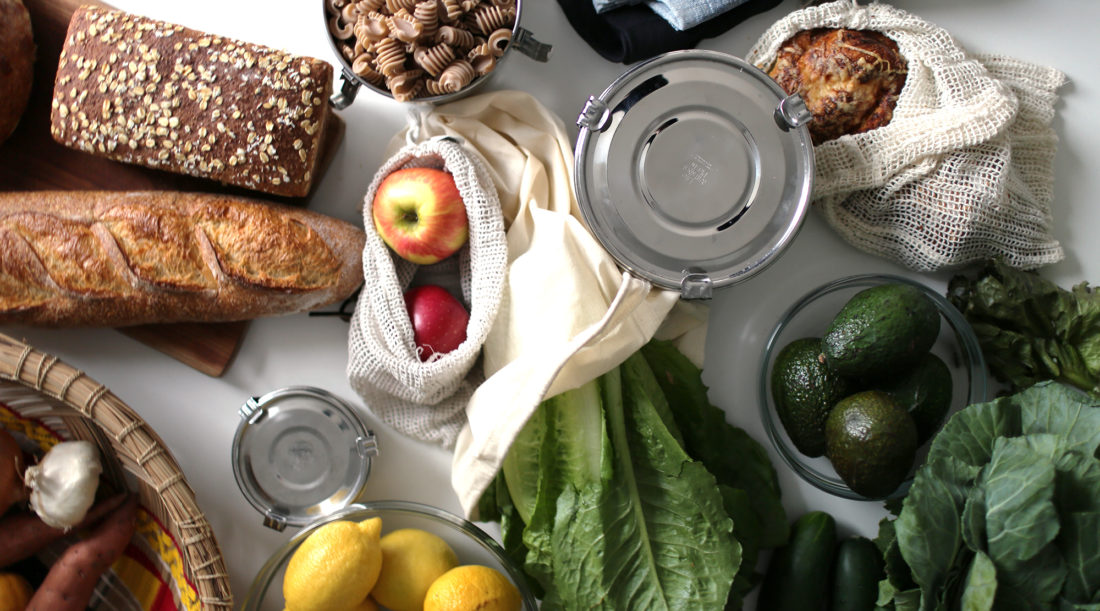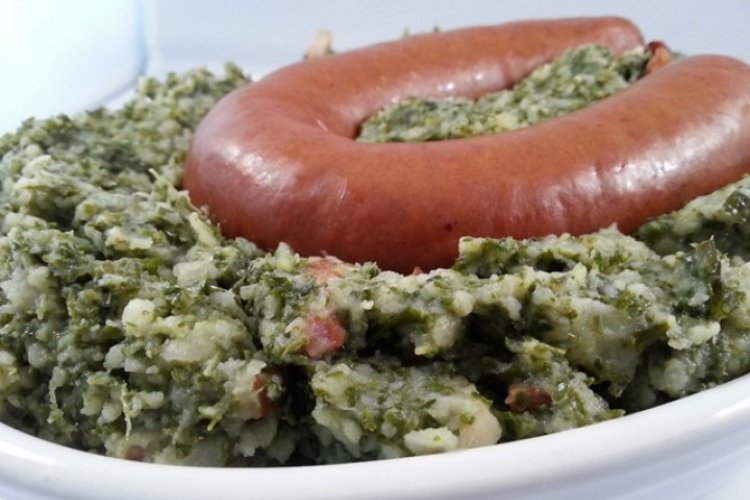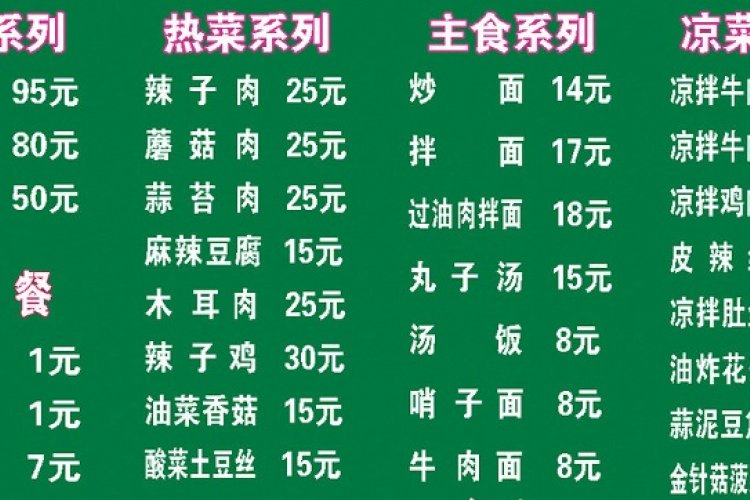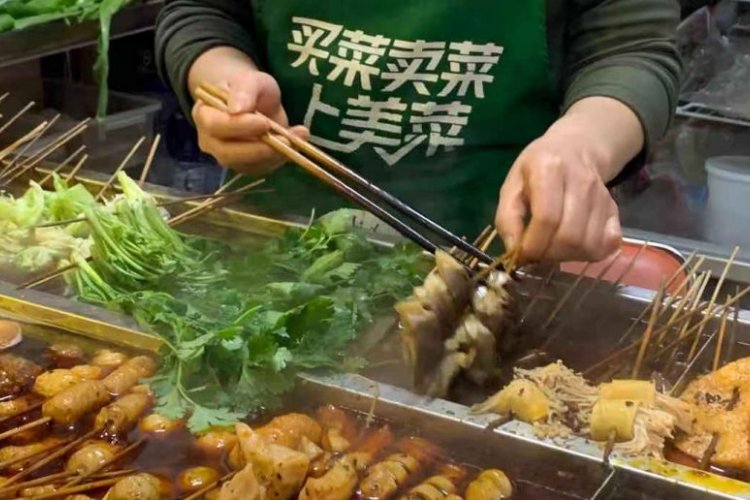Sustainable in the City: Maintaining a Zero Waste Lifestyle in Beijing
For many Westerners who have come to China, it’s like landing in an alternative universe – where according to the sheer amount of single-use disposable plastic in circulation, there’s no fear of climate change or polluted oceans. At meal times, the streets heave with delivery men, bringing cheap, convenient food packaged in plastic. While other countries are banning plastic bags, China is wrapping fruit and vegetables in cling wrap at warp speed.
Thankfully there is a small growing movement in Beijing that brings awareness to the issues that overconsumption and convenience are having on our environment, reminding locals and foreigners that the only way forward for our planet is for us to adopt a Zero Waste mindset – that is, we need to stop creating new resources which go from production to the waste heap, and instead create a cycle where new products are made from old.
It may seem daunting to incorporate Zero Waste principles in daily life, because of the perceived ‘sacrifice’ we need to make, yet, advocates tell us we need to redefine our perception of ‘normal’ to a lifestyle that is sustainable. Below you'll find some tips on how to live more sustainably in Beijing.

Home Waste
The first step in your home is to have a separate bin for recyclables, one for non-recyclable items and a separate bin for food waste (to dispose of separately or alternatively try indoor composting).
Recycling
Most plastics, cardboard, aluminum cans, tins, as well as UHT milk cartons are collected and can be recycled in Beijing. Make sure they are clean and put them out next to your rubbish bin in a separate box to make it easier for collection. In some housing communities, you may see the non-recyclables and recyclables being mixed together – this is okay because they will usually be sorted later. However, this is why it is essential to keep your food waste separated because once recyclables are contaminated with food, they can’t be recycled.
Non-Recyclable Items
When you start separating your waste, it is easier to look at your non-recyclable waste and figure out Zero Waste alternatives. If your bin is filled with packaging, think about how you can eliminate it. Beijing has plenty of wet markets that sell fruit, vegetables, flours, grains, meat, snack foods and even pet food in bulk with no packaging. There are zero waste options for everything, including sanitary products, household cleaners, and beauty products. Join a Zero Waste WeChat group for advice.

Food Waste
Food scraps and food waste make up a large percentage of waste, and if put into landfills, cannot break down properly and causes high levels of methane (23 times as potent as carbon dioxide) which are released, trapping heat within our atmosphere. The best way to dispose of food waste correctly is to compost it. The concept is simple – get a large bucket with a lid, drill some holes in it, and then fill it with your food scraps and torn up cardboard boxes. Eventually, you end up with compost that you can then use in a garden or dispose of in your neighborhood garden. There is a small community of indoor composters here in Beijing, with workshops happening frequently in schools and at different community events. Even better is to work at producing less food waste.
Sustainable food shopping
While you may find solace in your local Jenny Lou’s or April Gourmet, there are other options for filling your family’s grocery cart which are much more sustainable. Head to your local fruit and vegetable shop or wet market (tip: watch where the grandparents go), bulk food store or even Carrefour. Invest in a set of organic cotton reusable shopping bags and use your own containers to purchase meat. These places have fruit, veggies, grains, flours, dried fruits, tea, snack food and even pet food in bulk, and most places are more than happy to accommodate your requests to use your own bags.
Eating out waste
Delivery food and eating out are an everyday part of life here, so invest in your own set of reusable cutlery, straw, and chopsticks that you can keep in your bag and use when you eat out. Remember to refuse that plastic straw when asking for a drink.
Because of the amount of plastic waste that goes into delivery food, think about reducing the amount that you order and look for restaurants that package using compostable or cardboard food packaging, and select the ‘no cutlery’ option.
Food planning and bulk cooking are essential in fighting the convenience battle, so make sure you plan ahead. If you really can’t cook, then it’s preferable to eat out instead. If you have a favorite small restaurant in your neighborhood that you frequent often, you can provide them with reusable containers they can deliver your food in, and then when they bring your food, you can give them another set.
Take your own coffee cup to Starbucks and receive an RMB 3 discount, and if you forget your take-out cup, take 10 minutes to sit down and drink out of a ceramic mug instead. It tastes better that way too.
Water
There’s no need to purchase plastic bottled water since there are fabulous options for good quality water here in Beijing. Aquasana has tried and tested water filters, and there is a range of options on JD.com as well. Invest in a good quality stainless steel water bottle and carry that with you everywhere, topping up from water coolers as you go.
Goods and clothing
Consumerism is the leading cause of destruction to our beautiful planet, but there are things that we need. Think about buying second hand using apps or join one of the many ‘Buy and Sell’ groups filled with expats who are coming and going. Head to Roundabout, a fabulous second-hand store near WAB and Beijing Riviera area which has a lot of furniture, household goods, sports equipment and clothing from expats who couldn’t sell it off before they left.
Zero Waste Food Shopping Resources
Sanyuanli Market for dried fruits, tea, meat, fish, grains, nuts, seed snack bars, breads, noodles.
Shunyuan Jie (opposite Jingkelong Supermarket, west of Sanyuan Dongqiao), Chaoyang District
朝阳区顺源街(三元东桥往西京客隆超市对面)
Aoshikai Tongrisheng Grain Shop for flours, grains, dried fruits, oils, meat, fruit, vegetables.
56 Lama Temple Street, Dongcheng District
奥士凯同日升粮行(北新桥店)北京市东城区雍和宫大街56号
The Bulk House for household supplies.
24-2 Gulou Dongdajie, Dongcheng
东城区鼓楼东大街24-2号
Lishuiqiao Seafood Farmers’ Market
8 Liqing Road, Chaoyang District
(立水桥海鲜大市场) 北京朝阳区立清路8号
For more
You can connect to the sustainability scene in Beijing by supporting many of the local events and markets such as Farm2Neighbors, Rumble in the Jumble, or Live with Less. ‘The Bulk House’ in Dongzhimen is also a one-stop shop for reusable bags, stainless straws, other items and advice to help you begin to live more sustainably in Beijing. The Bulk House can also help connect you to one of the Zero Waste WeChat groups.
Photos: trashisfortossers.com, courtesy of The Bulk House, Rebecca Archer







